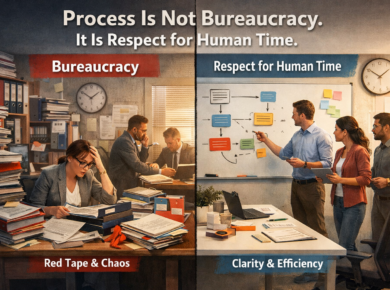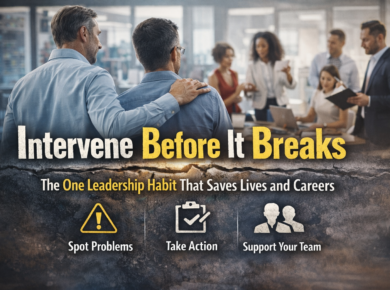Good Practice vs. Perfect Practice: Why Conditions Don’t Matter When You Aim Higher
“Good practice till you get it right needs perfect conditions. But good practice till you can’t get it wrong? Then conditions don’t matter.”
We’ve all heard the phrase “Practice makes perfect.” But the truth is, not all practice is created equal.
Some people practice just enough to get things right—when the room is quiet, the conditions are ideal, and everything is in their favor. Others push themselves to a whole new level. They practice so much, and so well, that even if the stage falls apart or the lights go out, they still perform flawlessly.
Let’s explore the difference.
The Illusion of Perfect Conditions
When you’re starting out, perfect conditions seem important. A silent room, fresh coffee, zero distractions—everything just right.
But here’s the catch: Life rarely gives us perfect conditions.
Relying on perfection in the environment creates fragile confidence. The moment something goes wrong, we break. Athletes who train only in climate-controlled gyms might crumble in the chaos of real competition. Speakers who rehearse only in silence may freeze when a mic fails or a phone rings.
That’s why “practice until you get it right” is not enough.
The Power of Repetition: Till You Can’t Get It Wrong
Elite performers don’t stop when they get it right once.
They keep going. Over and over. Until their actions become second nature. Until they can’t get it wrong—even if they tried.
This is what separates good from great.
-
The pianist who plays a piece perfectly even when someone coughs in the front row.
-
The cricketer who hits the perfect shot whether it’s cloudy, windy, or the crowd is booing.
-
The leader who delivers a calm, clear message even in a crisis.
They’ve rehearsed not just the content—but the chaos.
Practice Like a Pro: What It Takes
Here’s how to build that level of mastery:
1. Shift the Goal
Don’t just aim to “get it right.” Aim to never get it wrong.
Getting it right means you can do it. Not getting it wrong means you own it.
2. Vary the Conditions
Change the setting. Add distractions. Practice when you’re tired. Create pressure.
The more variability you introduce, the stronger your response becomes.
3. Go Slow to Go Fast
Perfect the basics. Speed comes later.
World-class chefs don’t rush their knife skills. Formula 1 drivers don’t skip gears when learning the track.
Mastery is built on muscle memory, not adrenaline.
4. Repetition with Intention
Mindless reps don’t help.
Each repetition should have a purpose. Are you refining timing? Improving clarity? Eliminating errors?
Be deliberate. Be curious. Be honest.
Why It Matters in Real Life
This philosophy doesn’t apply just to athletes or artists. It works everywhere:
-
In business: Can you explain your product clearly in an elevator? During a power cut?
-
In leadership: Can you inspire your team on a bad day?
-
In interviews: Can you answer confidently if you’re interrupted or your laptop crashes?
True confidence is built not by rehearsing success, but by rehearsing resilience.
Final Thought
If you only practice in perfect conditions, you’ll only perform in perfect conditions.
But if you practice till you can’t get it wrong—conditions don’t matter.
You’ll thrive in chaos. Stand tall in storms. Perform under pressure.
And that’s what separates amateurs from professionals.
So the next time you practice, ask yourself:
“Am I trying to get it right? Or am I training so I can’t get it wrong?”
The answer could change everything.
Deliberate Practice & Performance
-
Peak: Secrets from the New Science of Expertise by Anders Ericsson
Book Summary & Concepts:
https://fs.blog/peak-performance/ -
Deliberate Practice vs. Repetitive Practice (James Clear)
https://jamesclear.com/deliberate-practice -
The Role of Deliberate Practice in the Acquisition of Expert Performance (Anders Ericsson’s Original Research Paper)
https://psycnet.apa.org/doi/10.1037/0033-295X.100.3.363
High-Performance Mindset & Resilience
-
Performing Under Pressure: The Science of Doing Your Best When It Matters Most (Book)
Summary & Takeaways:
https://www.leadershipnow.com/leadingblog/2015/03/performing_under_pressure.html -
The Growth Equation Blog by Steve Magness & Brad Stulberg
Focuses on mastery, resilience, and high performance:
https://thegrowtheq.com/blog/
️ Training Under Adverse Conditions
-
How Navy SEALs Train for Chaos (Inc. Magazine)
https://www.inc.com/jeff-haden/navy-seals-training-resilience.html -
Mental Toughness by the U.S. Army
Tools & resources used in soldier training:
https://armyresilience.army.mil/
Motivational Videos on Mastery
-
Kobe Bryant – Obsession with Practice
https://www.youtube.com/watch?v=PEM0Vs8jf9A







